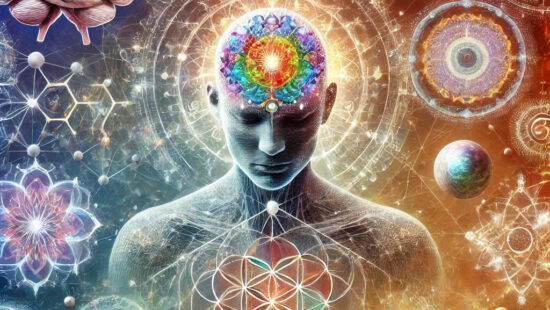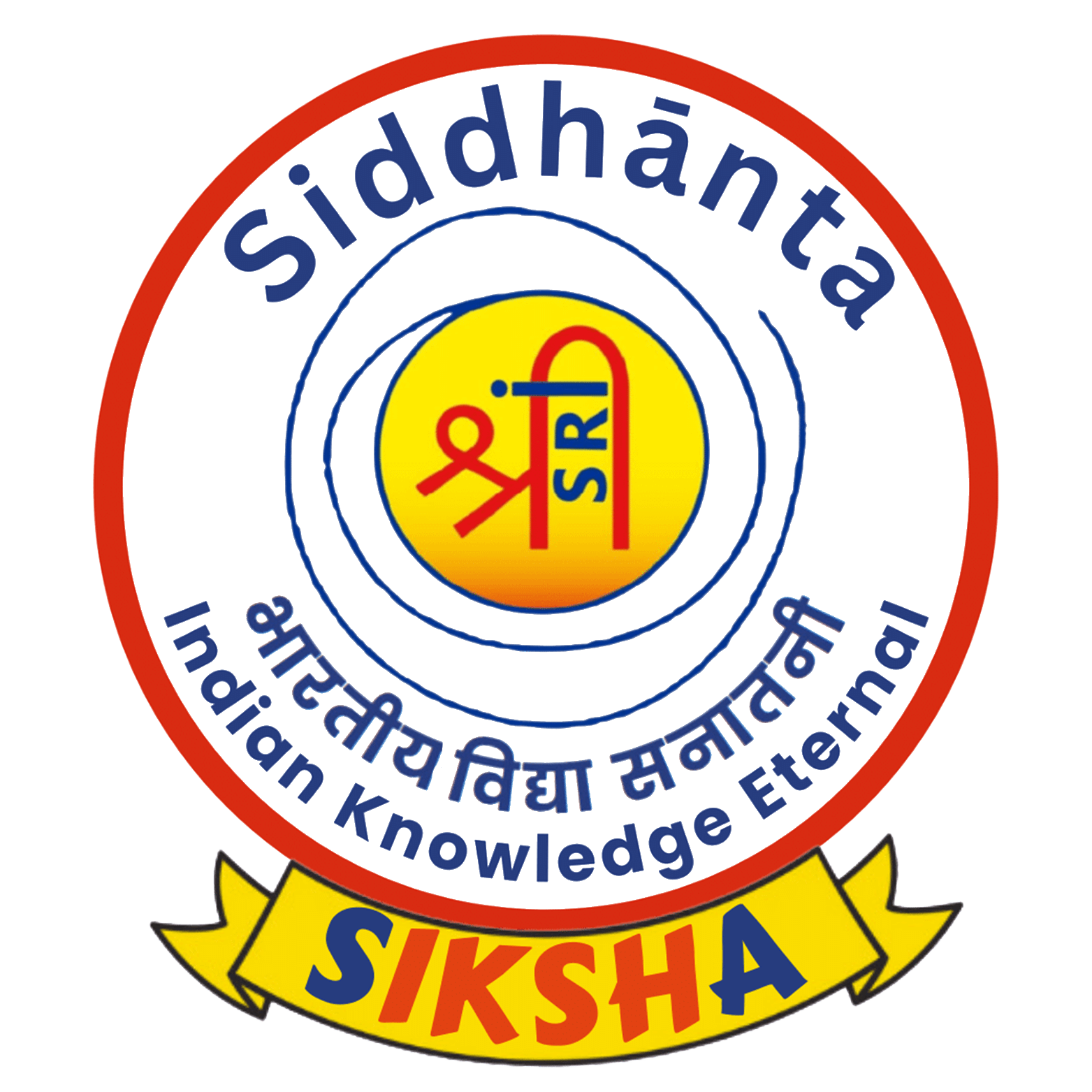
Indian Psychology: An Integral Model of Human Experience
- 45 Hours
-
3 Credits
*(T&C Apply) Credits applicable only for Undergraduate and Postgraduate students enrolling for SIKSHA courses through academic institutions based in India.
- UG
- Upcoming Courses
₹7,500.00(GST additional)
About The Course
This course aims to give a basic understanding of human psychology and the motives of human behaviour and serve as a foundation for all humanities disciplines. It integrates several Western models of psychology with a common taxonomy derived from the Vedic perspective. It also introduces a novel Vedic model derived from several Vedic sources, including the Upanishads, Sankhya-Yoga, Tantra, Bhaagavatam, Jyotisha, Natyashaastra, and Mimaamsa.
Syllabus
- Unit 1 - The Subject Matter of Psychology (1 to 7)
- ● Why Delight is central to human behaviour?
- ● Understanding the Experiencer: Why We Seek to Understand Human Nature
- ● The Anubandha Chatushtaya - The Four Guiding Questions
- ● Perspectives of various civilizations
- ● Perspectives of Bharatiya Civilization
- ● What Psychology Studies Today?
- ● What Psychologists Do and How It Differs from Other Fields
- Unit 2- Defining Psychology as a Scientific Model (8 to 16)
- ● Why and how is psychology a science of human experience?
- ● Anubhuti Tantram -Exploring Svarupa and Mya rupa jiva
- ● Anubhuti Tantram - Exploring aspects of Maya rupa jiva and Kosha, Anubhuti and prabhava
- ● Anubhuti Tantram - Exploring Cheshta, Guna, Budhi and Chitta
- ● Anubhuti Tantram - Exploring Svabhāva, and Saṁskāra
- ● Anubhuti tantram - The psychological process of Human action
- ● Anubhuti Chikitsa - Experience-Based Wellbeing Therapy
- ● Synthesising the Anubhūti Tantram Framework
- ● Defining psychology as a scientific model- (Explain - Classify - Predict - Control)
- Unit 3: Paradigms of Western Psychology (17 to 24)
- ● Introduction to a Vedic View on Major Psychological Paradigms
- ● Psychoanalysis Paradigm
- ● Psychoanalysis Paradigm from the lense of Anubhuti Tantram
- ● Behavior Paradigm from the lense of Anubhuti Tantram
- ● Cognitive Paradigm from the lense of Anubhuti Tantram
- ● Humanistic Paradigm from the lense of Anubhuti Tantram
- ● Existential Paradigm from the lense of Anubhuti Tantram
- ● Postive Psychology Paradigm from the lense of Anubhuti Tantram
- Unit 4: Vedic sources of psychology(25 to 31)
- ● Why Another Model? Birth of Anubhūti Tantram
- ● The Nature of Manas- insights from various texts
- ● Exploring Yogah perspectives
- ● Insights from Shaivagama
- ● Jyataa, Jyeeyam & Jyaanam
- ● Insights from Vedanta
- ● Concluding Module: Revisiting the Journey of Human Experience
- Unit 5: Diving deep into the tenets of Anubhuti Tantram(32 to 42)
- ● Revisiting Anubhuti Tantram
- ● The Kosha Framework: The Dimensions of Human Experience
- ● The Annamaya Kosha – Part 1
- ● The Annamaya Kosha – Part 2
- ● The Pranamaya Kosha
- ● The Manomaya Kosha
- ● The Kosha of Matam
- ● The Vijnanamaya Kosha
- ● The Anandamaya Kosha
- ● Health and Healing from Anubhuti Tantram Lens
- ● Synthesis: Living Through the Koshas
- Unit 6: Psychological Interventions (43 to 63)
- ● Psychoanalytic Therapy
- ● Decoding Psychoanalytic Therapy with Anubhūti Tantram
- ● Behaviour Therapy
- ● Decoding Behaviour Therapy with Anubhūti Tantram
- ● Cognitive Therapy
- ● Decoding Cognitive Therapy with Anubhūti Tantram
- ● Humanistic Therapy
- ● Decoding Humanistic Therapy with Anubhūti Tantram
- ● Existential Therapy
- ● Decoding Existential Therapy with Anubhūti Tantram
- ● Yajna
- ● Decoding Yajna with Anubhūti Tantram
- ● Pranic Healing
- ● Decoding Pranic Healing with Anubhūti Tantram
- ● Yoga Therapy
- ● Decoding Yoga Therapy with Anubhūti Tantram
- ● Introduction to Ayurveda
- ● Ayurveda Sattwa Vajaya Chikitsa
- ● Yukti Vyapāśraya Chikitsa
- ● Daiva Vyapāśraya Chikitsa
- ● Bringing It All Together: Indian Psychology – An Integral Model for Human Experience
- Unit 7: Psychological Basis of Vedic Culture and Ethics (64 to 75)
- ● Understanding Vedic cultural terminology - Purusharthas
- ● Essance of Dharma
- ● Introduction to Karma
- ● Impacts of Karma
- ● Svadharma: A Personal Compass
- ● Karma, Dharma, and the Psychology of Relief
- ● Jyotisha as a model of karma
- ● Punya, Paapa and Punarjanma
- ● Varna and Āshrama — Discovering Purpose in Society and Self
- ● Perspective on Marriage: From Self-Centred Joy to Higher Joy
- ● Indian Ethics:The Psychology of Harmony in Indian Thought
- ● From Reflection to Transformation:Understanding Human Experience
- Unit 8: Project work
More Information
- Learning Objectives
- The program shall enable learners to:
- 1. Develop a comprehensive understanding of human psychology by integrating Western theories with Vedic perspectives from sources like Ayurveda, Jyotisha, and Yoga.
- 2. Gain knowledge of human growth and development through psychological theories and Vedic principles, focusing on life stages and their psychological traits.
- 3. Acquire practical skills in Vedic psychological diagnosis and apply interventions such as Pranic healing, Yogasana, and Hypnotherapy in therapy.
- 4. Explore and critically evaluate Western and Vedic personality theories to understand factors shaping identity, behavior, and social interaction. Build foundational counselling skills using both Vedic and Western approaches to support psychological well-being.
- 5. Examine social behavior and cultural influences on psychology, integrating both perspectives for a holistic view of human interaction.
- Intended Outcomes
- After completion of this course students will be able to -
- 1. Comprehend the basic meaning & nature of western psychology
- 2. Compare and contrast various paradigms of western psychology
- 3. Understand and evaluate various fundamental concepts of Vedic psychology
- 4. Juxtapose western and Vedic understanding of human personality
- 5. Diagnose various psychological issues and create an intervention plan by integrating western and Vedic principles












